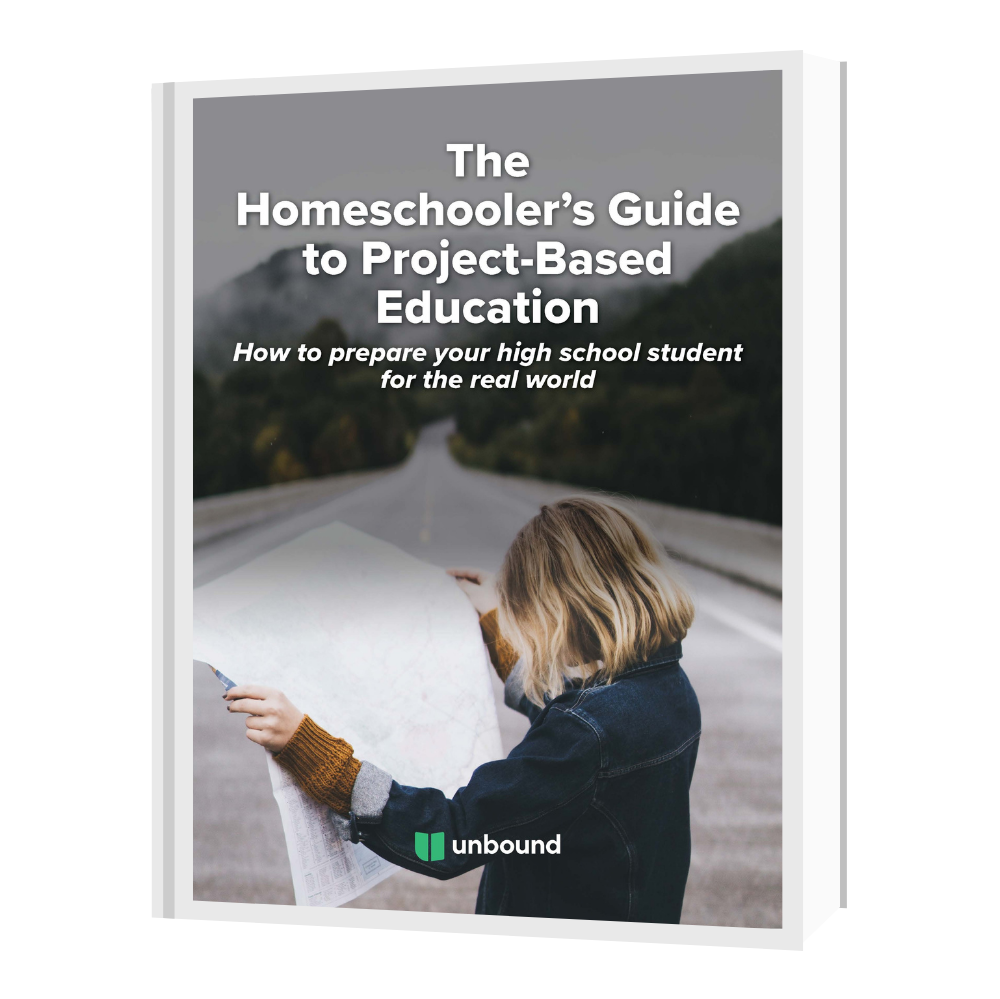50% of Parents Aren’t Sending Their Child to College, Here’s Why That’s A Good Thing


Have you ever heard a statistic and just thought to yourself “Wow”?
Maybe it takes a moment for the true significance of the number to actually sink in.
Recently, in an interview with Mike Rowe, a FOX analyst quoted a statistic that 50% of parents were not planning to send their child to a four-year university.
That’s an incredible statistic.
You may or may not trust FOX’s sources for that number but whether the number is exactly 50% or not, it’s plain to anyone paying attention that millions of Americans are questioning the value of a traditional higher education experience and a four-year degree from a university.
Research Shows…
Interestingly, in the interview, Mike Rowe alludes to research done by the Populace think tank on the perceived value of education. This is old news for us at Unbound. We’ve long been aware of Populace’s research and their findings: college degrees are just not as important as people think other people think they are.
The future of education in your inbox.
Get productivity tips, commentary, and Unbound updates sent to you!
What exactly does that mean?
Well, according to Populace research, Americans were asked to rank 57 various purposes for education in the order that they found most important. Then, they were asked to rank them again in the order that they believed others found most important.
The results were eye-opening.
The study observes: “Conventional wisdom, and decades of social engineering, have told us that the point of K-12 education is to make students college-bound — often to the most prestigious one possible.” (Source)
This perception that a full college education at a prestigious university is the bedrock of success is common. But what do people actually think?
The study continues: “When given 57 priorities for children’s K-12 education, Americans ranked [being prepared to enroll in college] as #47. However they believe it is other people’s third-highest priority, demonstrating a deep societal misunderstanding of one another.” (Source)
Not only does it reveal a deep societal misunderstanding, it reveals that what was once held up as important and essential in preparing for a successful future is now regarded as hardly that at all.
So What?
So what’s the point?
Well, one takeaway is that if you are questioning the value of spending thousands of dollars to send your child to a four-year university to earn a bachelor’s degree as they cross the threshold of their twenties, you’re not alone.
The question of whether or not one should attend college used to be a silly question. Of course you should! College was seen as the door that opened to financial, professional, and relational opportunities galore. Formal education was heralded as the key to each individual’s dreams.
But that was a different time. It was a time when access to information was more limited. It was a time when knowing answers to the questions of the world was expensive and so anyone who could learn the answers had a valuable asset. Knowledge was wealth.
We’re not living in that world anymore. As Unbound President and CEO, Jonathan Brush, has pointed out on many occasions before: we live in a world inundated with information where answers are all too easy to come by.
In a world like that, questions are what drive significance. The people who can ask better questions and weed through the overabundance of answers to find true direction are the ones who will find success in what matters most.
This is not something taught at universities, by and large.
Luxury Prices
Pursuing a college degree isn’t a bad idea, per se. In fact, in some fields, it’s absolutely vital. (I’m thinking here of fields like nursing and engineering.) But the fact of life is this: a lot of what is taught in college classrooms can be found online…for free.
Furthermore, in a world where practically everyone competing for the same jobs has a degree, a degree won’t make a candidate stand out in the crowd. Formal education isn’t the key to unlock doors that it used to be. In the interview linked above, FOX reports that companies like Bank of America, Apple, and more are dropping requirements for college degrees as they hire new talent.
This means that the millions spent on higher ed each year are the equivalent of luxury prices for household goods. We’ve likened it before to paying Maserati prices for a minivan.
So, if the 50% statistic is accurate, we think that’s probably a good thing, at least when it comes to families making good decisions on a cost-benefit analysis. Even if 50% of parents were simply considering not sending their child to a four-year university, that would be a great sign for better education and preparation alternatives for students pursuing their next step.
Whether a student is looking to start building a career in business, the humanities, the trades, or the arts, the college path is not always an effective and helpful route. In fact, there’s most likely a better option out there.
Higher Ed ‘Reckoning’
Higher education is due for a ‘reckoning’, according to Rowe in the above-linked interview. The challenge ahead of many universities is to contextualize their educational offerings in a way that helps students solve the real problems they face as they launch into what’s next.
The real problems that these students face are not grounded in the lack of credentials or the need for a degree in liberal arts or business subjects. They are often more practical in nature. The lack of business experience, for example, is more likely to be a challenge for a budding entrepreneur instead of a lack of a business degree or MBA.
At the end of the day, business experience will actually hold more value for this student than any amount of formal business “schooling”.
This stuff isn’t new to Unbound. We’ve been saying it for years. College degrees on their own don’t prepare students for success in real life. In fact, they can actually inhibit a student’s launch through wasted time and wasted dollars.
The college decision should be made based on what makes the most sense for each student’s situation, purposes, and goals. It should not be made lightly on the basis that “everyone” is doing this. It should not be made based on the perception that preparing for a four-year degree is among the top purposes of K-12 education, as the Populace study shows that this perception is flawed when compared to actual stated priorities.
Ultimately, the process of preparing for what’s next needs to be driven by the individual student’s unique situation. College is one path of many. Parents considering other options besides college are giving this major decision the proper amount of attention and consideration.
How Unbound Helps
We would be remiss if we didn’t mention how Unbound serves young adults preparing for life. Our approach is not one of indiscriminate formal education. We recognize the value of formal education and degrees, when they are actually valuable.
We also recognize that many students would be better served getting real experience in the real world, exploring the fields they are interested in hands-on. That’s why we emphasize project-based education to the extent that we do.
We also recognize that students need to be prepared for more than just their careers. Those are certainly important but relationships, resilience, and more also make up the success of a young adult’s life.
That’s why Unbound’s flagship program, Ascend, is designed to help young adults develop excellence in building relationships, owning their purpose, and living resiliently for the glory of God. We’re about more than just credentialing young adults for their next job. We’re interested in helping them get the skills, experience, and training necessary to truly thrive.
Ascend is the main way we do this.
Students in Ascend attend four live events together. They engage in team collaboration, group coaching, and project support and encouragement. They complete resume-worthy projects in the real world.
And there’s more to Ascend than just that. Schedule a free consultation to learn more and check your student’s eligibility.


Jace Bower is a Copywriter for Unbound. An Unbound alumnus, he has experienced firsthand the powerful advantages of doing college differently and participating in an intentional community. Jace graduated with his bachelor’s degree in History in 2016 and has worked in restaurant management and marketing since then. He also served on the Unbound Student Cabinet in 2019.
The author of two books and a semi-regular blogger, Jace can often be found doing something with words. When he’s not, chances are he’s reading about theology, listening to music, or playing pool or tennis with his wife Shannon in their Virginia home.


